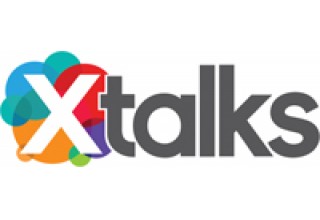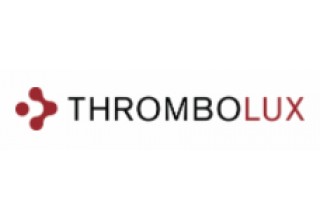Addressing Platelet Refractoriness: Giving Hematology-Oncology Patients the Best Chance of Success, New Webinar Hosted by Xtalks

TORONTO, January 15, 2018 (Newswire.com) - Join the live session on Wednesday, Jan. 24, 2018 with featured speaker Dr. Elisabeth Maurer-Spurej, Founder of LightIntegra Technology and principal inventor of ThromboLUX®. Dr. Maurer-Spurej will introduce activated platelets and their prevalence, discuss the impacts of activated platelet transfusions, and present a practical solution to this situation.
The activation of platelets is a well-documented phenomenon. It is now clear that many donated platelet transfusions contain activated platelets. This situation can lead to serious implications for the treatment of hematology-oncology patients who are dependent on platelet transfusion support during their treatment.
Platelet activation refers to the transition of resting, discoid platelets to dendritic spheres. This phenomenon occurs in response to a variety of stressors, is reversible to a certain extent, and does not necessarily culminate in clot formation1. Evidence is accumulating that the primary source for activated platelets in a platelet transfusion is the donor. The donor’s immunological and inflammatory state at the time of donation appears to influence the activation status of their platelets2. These donor factors are often asymptomatic and are not caught in donor screening resulting in a surprisingly high number of activated platelets being transfused. The rate of activated platelets ranges between 30 percent and 50 percent of the platelet inventory9. Activation rates falling in this range have been observed across North America and Europe.
Transfusions with activated platelets tend to result in lower count increments3. Hospitals that transfused exclusively non-activated platelets to their hematology-oncology patient populations have seen drastic reductions in the rate of patients requiring massive transfusion support, and the average number of transfusions per patient9. The above observations have been attributed to interactions between activated platelets and the recipient’s innate immune system. In particular, complement opsonization may be the cause of many otherwise unexplained occurrences of platelet refractoriness.
In addition to the implications of activated platelets on platelet refractoriness, a growing body of literature is suggesting activated platelets may interfere with certain immunotherapies. It was shown that activated platelets contain various upregulated factors, suggesting that platelets may be highly immunomodulatory. Specifically, TGFβ4, IL-65, CD40L6 and complement7 are found in conjunction with activated platelets. This serves to add complexity to the treatment of already very complex patients.
To reduce the complexity and risk associated with activated platelet transfusions, it is recommended to transfuse hematology-oncology patients with exclusively non-activated platelets. This is most practically achieved through routine screening of platelet transfusions in the hospital blood bank. Selective allocation and transfusion of non-activated platelets to hematology-oncology patients promises to significantly improve patient care.
For more information or to register for this complimentary event visit: Addressing Platelet Refractoriness: Giving Hematology-Oncology Patients the Best Chance of Success
ABOUT XTALKS
Xtalks, powered by Honeycomb Worldwide Inc., is a leading provider of educational webinars to the global life science, food and medical device community. Every year thousands of industry practitioners (from life science, food and medical device companies, private & academic research institutions, healthcare centers, etc.) turn to Xtalks for access to quality content. Xtalks helps Life Science professionals stay current with industry developments, trends and regulations. Xtalks webinars also provide perspectives on key issues from top industry thought leaders and service providers.
To learn more about Xtalks visit http://xtalks.com.
For information about hosting a webinar visit http://xtalks.com/why-host-a-webinar.
Contact:
Nima Rajan
Tel: +1 (416) 977-6555 ext 352
Email: nrajan@xtalks.com
Source: Xtalks

